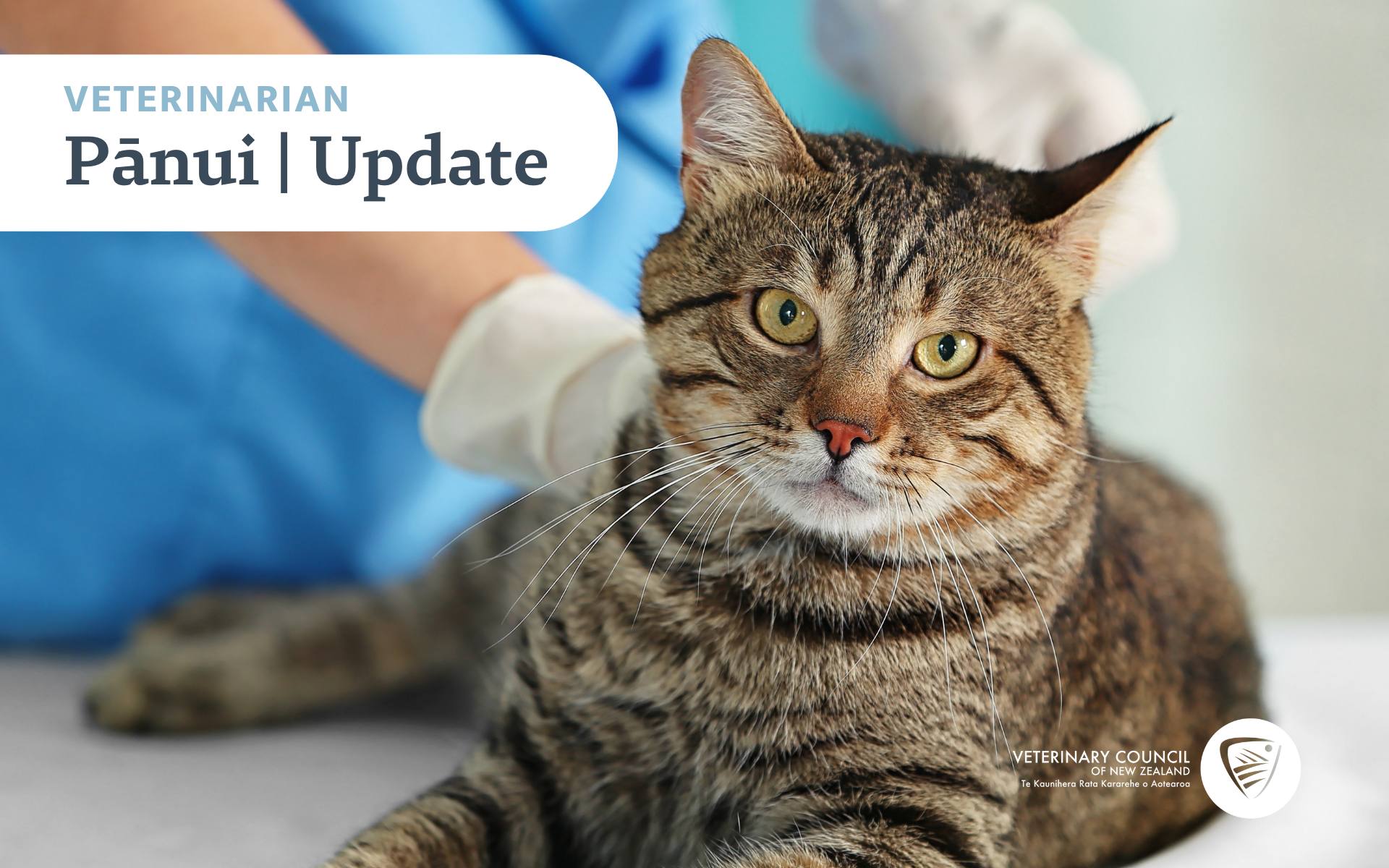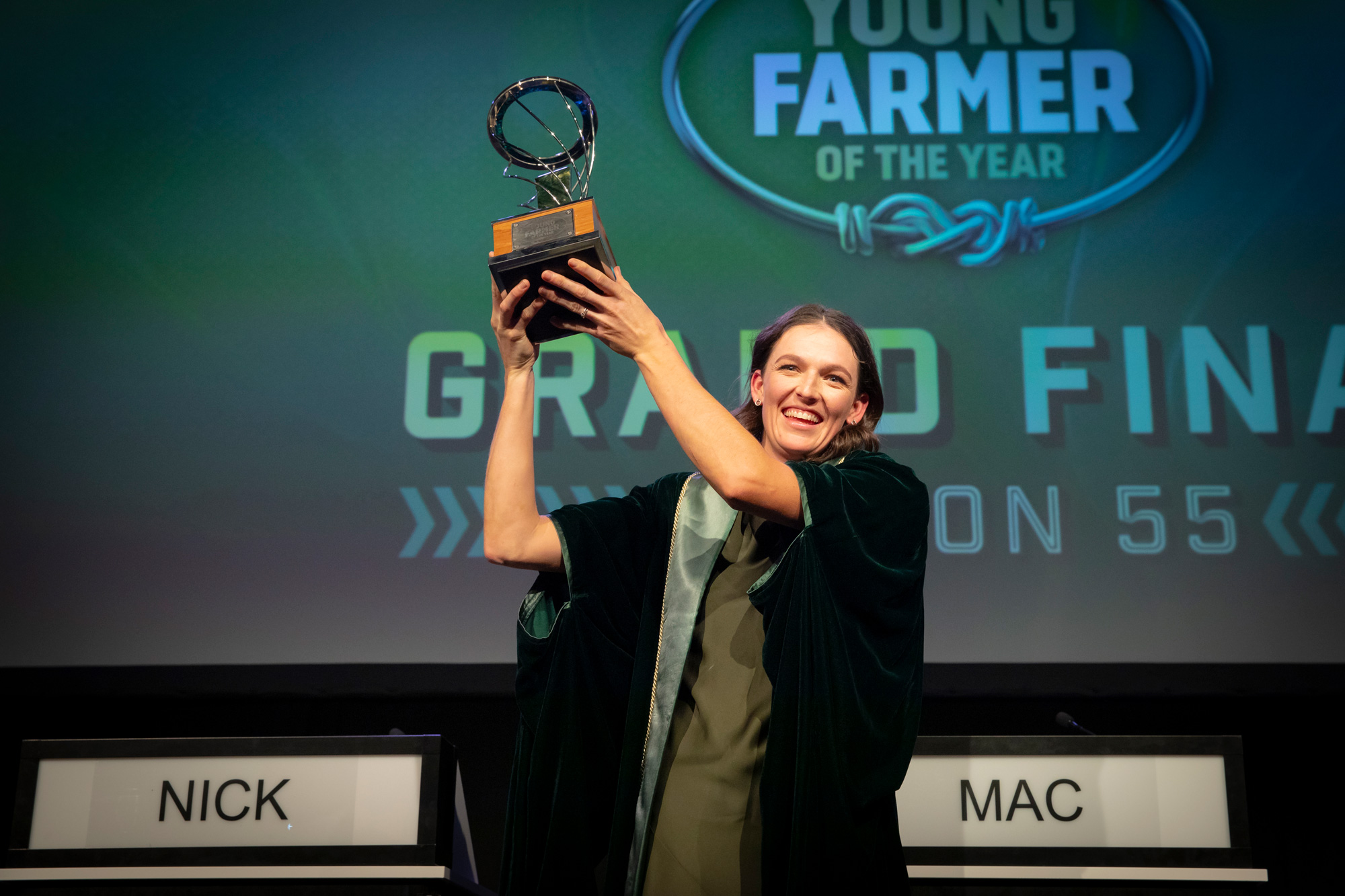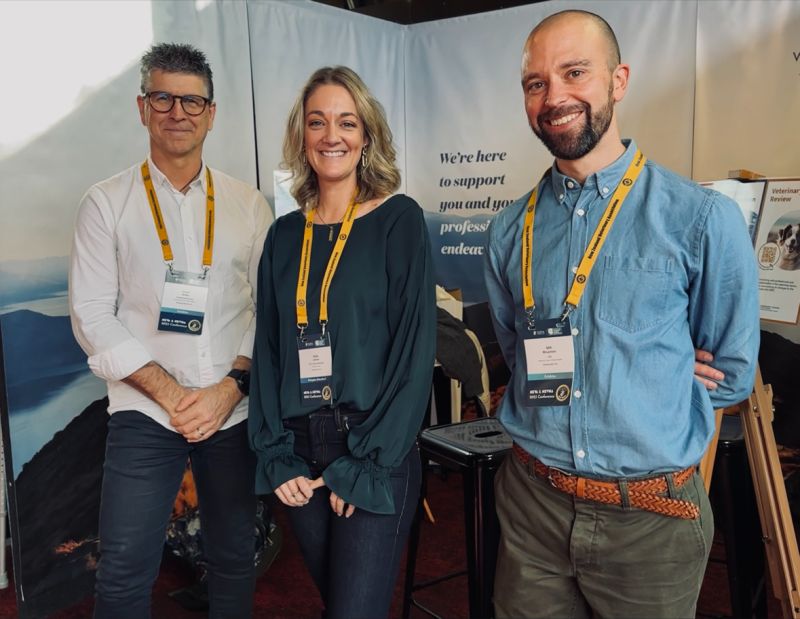
Veterinarians Pānui July 2023
Welcome to our July pānui for veterinarians. In this edition, we have featured a notification from MPI about an increased risk of leptospirosis infections. VCNZ is currently working with MPI’s Animal Health team and others in the sector to raise awareness about this risk and how cases can be treated.
We have included information about the reclassification of several controlled drugs; an upcoming media release about encouraging the increased use of AVPs in clinical work; and a story celebrating veterinarian Emma Poole’s historic win at the Young Farmer of the Year competition. There is also a survey for veterinarians on the use of chemotherapy in small animal practice, and details for the New Zealand Biosecurity Awards, added in the messages from others section.
Increased risk of leptospirosis infections in animals
The Ministry for Primary Industries (MPI) has issued a notification that there is currently an increased risk of leptospirosis infections in animals and humans, after adverse weather events this year.
Following the joint Cyclone Gabrielle and Endemic Diseases Forum (EDF) meeting, the MPI Animal Health (Endemics) team was asked to monitor endemic diseases that could increase after flooding, using a passive animal health surveillance system. Leptospirosis was one of those diseases.
Although the surveillance data, which mainly focuses on production animals, has not shown an increase in confirmed leptospirosis cases in animals, there has been an increase in human leptospirosis cases post-cyclone.
A significant increase in human leptospirosis cases is a serious event. It signals that the bacteria is circulating in animals, as humans are infected through contact with infected animals’ urine directly or indirectly (e.g. through flood water). Apart from the surveillance evidence of increased human cases, there has been heightened talk among the veterinary profession of increased observations and treatment of leptospirosis cases in dogs and sheep.
Initially, the focus was on increased cases in flood affected areas (Hawke’s Bay and Tairāwhiti), but the problem may be more widespread. Although this is anecdotal evidence, a consortium of professionals called upon by MPI have agreed there is a high likelihood of increased animal leptospirosis infections.
The MPI Animal Health team, Massey University, the New Zealand Veterinary Association (NZVA) and VCNZ are working towards increasing awareness about leptospirosis in animals, as well as treatment and preventative vaccinations. This information will be distributed through various channels.
If you have any questions, please email the MPI Animal Health team [email protected]
Reclassification of fentanyl, tramadol, zopiclone and zolpidem
Medsafe has recently released information to help guide veterinarians on the classification changes that happened on 1 July for fentanyl, zopiclone and zolpidem, and for tramadol, which is happening on 1 October 2023.
A summary of the information, including prescribing and dispensing points, and storage and recording requirements, can be found on The Hub (hub.vetcouncil.org.nz/reclassification-of-fentanyl-tramadol-zopiclone-and-zolpidem).
There is also a link to the Medsafe website which provides access to all prescription medicine data sheets, where veterinarians can obtain important information about the human medicines they use: https://www.medsafe.govt.nz/Medicines/infoSearch.as
Read more
Additional support from AVPs welcomed amid workforce shortage
VCNZ will soon be issuing a media release that encourages an increased use of veterinary nurses and technicians for clinical work within their scope of practice.
The purpose of this is to familiarise the public with the idea that an appropriately qualified professional might see their pet for some issues or minor procedures instead of their usual vet. VCNZ also wants to encourage the use of Allied Veterinary Professionals (AVPs) for helping spread the workload among various veterinary team members to help respond to the current vet shortage in Aotearoa.
This article will be added to the news section of the VCNZ website over the next few days.
Emma Poole wins 2023 FMG Young Farmer of the Year
Congratulations to veterinarian Emma Poole who has made history by winning the 55th FMG Young Farmer of the Year award, becoming the competition’s first female champion.
Representing Waikato Bay of Plenty, Emma says she was thrilled with the result after competing in three days of challenges that tested her farming skills and general knowledge. She says her veterinary training and work as a production veterinarian was put to good use.
“The competition was pretty physical and there was a huge technical side it, but the vet knowledge always backs you up and especially came in handy during the exams,” she says. “With some of the technical work, having that systems approach really helped as well as HR and communication skills. The vet degree keeps you pretty grounded and put me in good stead throughout the competition.”
Emma graduated with a Bachelor of Veterinary Science from Massey University in 2018 and has been working at Vetora Te Awamutu. She is currently on maternity leave after welcoming her son into the world, with plans to return to the clinic as a locum in the spring. Based at Mount Pirongia, Emma and husband Chris look after a 720-cow farm, splitting calving between autumn and spring and rearing an additional 1000 calves alongside milking.
New Zealand Young Farmers Chief Executive Lynda Coppersmith said Emma impressed judges with her resilience, broad skills and knowledge, and sheer determination.

NZVA Conference
Congratulations to everyone involved in organising the 2023 NZVA Centenary Conference and NZVNA Annual Conference. VCNZ had a great time talking with people at our stall about some of the key pieces of work we are doing over the next year.

Pictured from left, VCNZ Professional Advisor Seton Butler, Council member Dr Kylie Lawson, VCNZ CEO and Registrar Iain McLachlan.
Messages from others
The items below come from other organisations. We have agreed to share them with veterinarians because they may be of interest. If you have any questions or concerns about them, please contact the organisation directly
Use of cytotoxic chemotherapy in small animal practice research
Dr Sarah Northover is currently completing a Master of Veterinary Medicine and is surveying veterinarians about the use of chemotherapy in small animal practice to treat cancer, and the factors that impact whether it is used or not.
You do not need to use chemotherapy to answer this survey as Sarah is trying to better understand how many vets currently do or do not use this treatment modality. To take part in this survey, please click the button below. The survey closes on 31 July.
Click here
New Zealand Biosecurity Awards entries open now
The New Zealand Biosecurity Awards recognise and celebrate outstanding contributions to protecting the country’s unique environment and taonga through community work, science, research, business, and innovation.
Last year’s Supreme Award winner was Wilderlab, for work in developing technology that can reveal what native and pest species are present in a cupful of water. Shaun Wilkinson, founder and CEO of Wilderlab says the success of the award drove a sharp increase in the uptake of environmental DNA monitoring across the country.
There are nine New Zealand Biosecurity Awards categories, and people can enter more than one.
- BioHeritage Challenge Community Award
- New Zealand Biosecurity Kura (School) Award
- New Zealand Biosecurity Māori Award
- GIA Industry Award
- Eagle Technology Local and Central Government Award
- New Zealand Biosecurity Science Award
- Mondiale VGL Innovation Award
- AsureQuality Emerging Leader Award (nomination only)
- Minister's Award (nomination only)
⠀More information